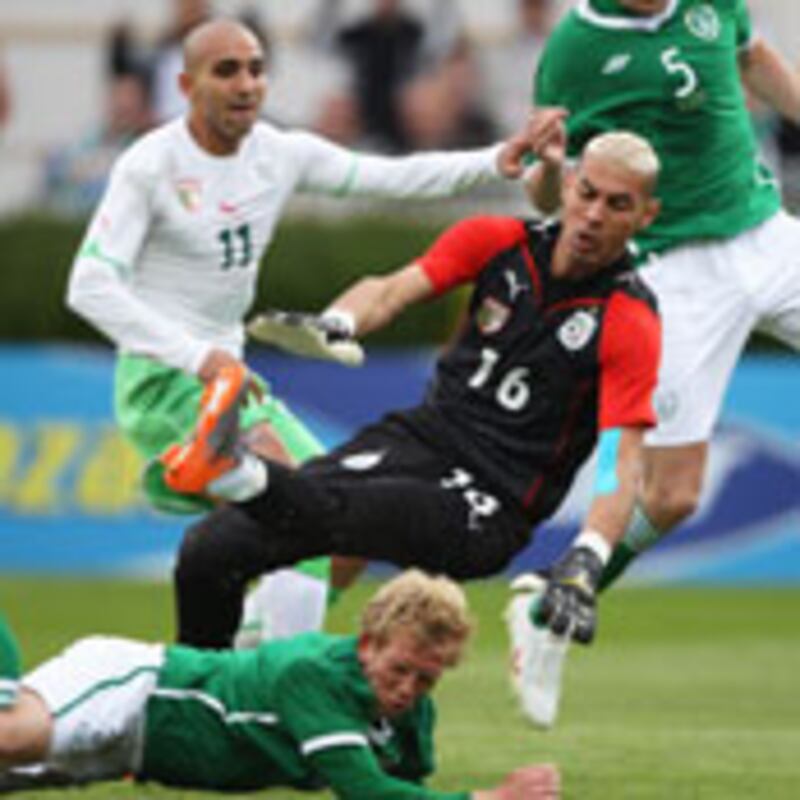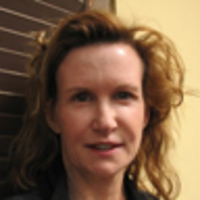
LAGOS, Nigeria—Sex on the sidelines is a World Cup tradition. In 2006, when the games took place in Germany where prostitution is legal, “sex zones” and “sex huts” brought together sex workers and soccer fans from around the world.
But the mix of sex and soccer will be more troubling when, in a few weeks, the World Cup comes to South Africa, which has the highest recorded HIV rate in the world.
More than one in ten South Africans live with HIV and among prostitutes, the rate reaches one in four. For trafficked prostitutes, the rate jumps to 90 percent, according to Ben Skinner, a Harvard fellow who writes on the sex trade and sex trafficking.
Women and girls have been lured into prostitution for the cup by false promises of employment as tour guides or waitresses, or have been kidnapped by trafficking rings.
For those traveling to South Africa in the coming weeks, “I would hope that they’re going there to watch soccer, in which case—God bless them,” Skinner said. “If they are going in part to pay for sex, I would certainly say two things: One, it’s a very dangerous proposition. And two, it also gives rise to a trade in human misery.”
Lack of economic alternatives led many women in underdeveloped South Africa to enter prostitution, said Skinner. And in recent weeks, there have been numerous reports of women flocking from the poor countryside, and from neighboring Zimbabwe, to South African cities to make money as prostitutes during the World Cup, which begins on June 11 and lasts a month. An estimated 350,000 foreigners will visit South Africa for the cup.
“Stop 2010 Human Trafficking,” a project organized by a non-profit Christian alliance in South Africa, warned this week that as many as 100,000 women could fall victim to traffickers during the World Cup. Activists also worry that the cup might contribute to the existing—serious—problem of trafficking of under-age girls for prostitution in the country. Already, many women and girls have been lured into prostitution for the cup by false promises of employment as tour guides or waitresses, or have been kidnapped by trafficking rings, anti-trafficking activists say.
For under-aged girls trafficked into prostitution during the World Cup, AIDS and tuberculosis is “the end-game for those children,” said Skinner, adding that an estimated 30,000 to 40,000 of the prostitutes for the games will be girls under 18.
While prostitution is illegal in South Africa, a leading advocacy group for sex workers in South Africa—the Sex Worker Education and Advocacy Task Force, or SWEAT—has used the occasion to advocate for legalization, and a study has been commissioned in connection with the games to research whether major international sporting events actually trigger an increase in trafficking of children and women.
Skinner, for one, resists legalization efforts. “Anyone who calls for the legalization of prostitution,” he said, will have “blood on your hands.”
Critics say South Africa’s government has shown itself unequal to controlling HIV transmission and trafficking of sex workers for Africa’s first World Cup. South African President Jacob Zuma last week warned of the increased risk of trafficking of children and women during the World Cup, and his government has more than tripled the number of condoms it gives out to more than 1.5 billion condoms, compared with last year. Furthermore, this spring, Zuma underwent an HIV exam—which tested negative—as part of a drive to promote AIDS testing.
AIDS activists have criticized Zuma for not doing enough about these problems. And a 2006 rape trial, in which Zuma admitted having unprotected sex with a much-younger neighbor, is still talked about, even though Zuma was acquitted in the case.
Still, some say that Zuma is an improvement over South Africa’s previous president, Thabo Mbeki, who urged traditional folk treatment rather than proven medicine for AIDS—a campaign of denial that activists say hindered efforts to establish effective AIDS campaigns in South Africa.
FIFA, the international soccer association hosting the World Cup, predicts significantly higher profit for these games compared with the 2006 cup in Germany. But nonetheless, FIFA has recently cut its funding for anti-trafficking programs, Skinner said.
Western governments, for their part, have done little to counsel fans traveling to South Africa about the country’s HIV and trafficking problems. American fans make up the single biggest bloc of fans attending the games, and this week the State department issued a World Cup travel alert. It warned against crime, terrorism and yellow fever, but made no mention of AIDS or HIV.
More effective—perhaps—was a British tabloid campaign. “Killer at the World Cup–England fans face HIV vice threat in South Africa,” screamed a recent headline in the News of the World, next to a photo of a lithe South African beauty.
Ellen Knickmeyer is a former Washington Post bureau chief in Baghdad and Cairo. Before coming to the Post, she was the West Africa bureau chief for The Associated Press. This year, she graduated from Harvard University’s Kennedy School of Government.






